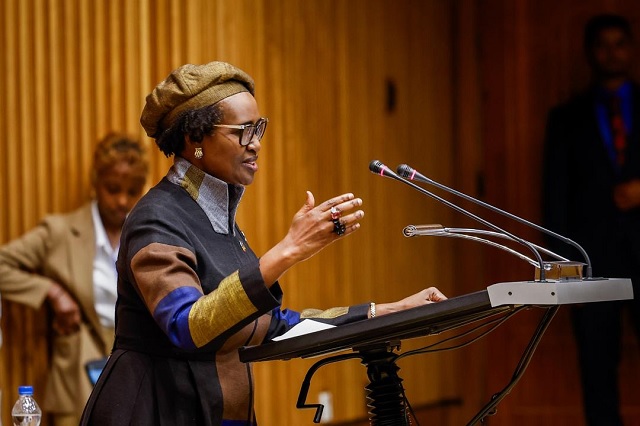
Kampala, Uganda | THE INDEPENDENT | UNAIDS Executive Director, Winnie Byanyima has urged countries including Uganda to protect women’s rights to protect their health.
She further calls on leaders to fight all forms of gender-based violence if women and girls are to be protected against HIV/AIDS.
“This risk is heightened for the 600 million women and girls who live in the world’s conflict-affected countries, facing an increased danger of sexual violence. And in the majority of the world’s poorest countries, the debt crisis is squeezing out investment in education, health, and social protection, particularly hurting women and girls,” she said.
The Ugandan politician–turned–international Aid worker in a message to mark International Women’s Day says the world is way off track to meet the gender, equality, and HIV targets that are part of the Sustainable Development Goals.
International Women’s Day is celebrated on 8th March each year. The United Nations designated the year 2024’s theme as ‘Invest in Women: Accelerate Progress’ with a focus on addressing economic disempowerment, while the campaign theme for this year is ‘Inspire Inclusion.’ It highlights the significance of diversity and empowerment across all sectors of society.
UNAIDS’ call this International Women’s Day, is to protect women and girls’ health, protect women and girls’ rights. In doing so, the world will end AIDS, and will overcome the inequalities driving it.
Byanyima said at the current rate of progress, it will take an estimated 300 years to end child marriage, 140 years for women to be represented equally in positions of power and leadership in the workplace, and 47 years to achieve equal representation in national parliaments.
She revealed that around the world, at least five women or girls are killed every hour by someone in their own family. One in three women worldwide experiences sexual or gender-based violence.
“And across the world, 122 million girls are out of school. Millions of girls even if they are in school are not allowed vital information to protect themselves. To protect their health,” that, she said is particularly hurting poor girls and poor women.
The former Mbarara Municipality MP notes that women who experience violence are more at risk of acquiring HIV. Women are further threatened by the organized pushback against women’s rights.
“Today, women’s hard-won rights are under a globally coordinated, ruthless attack. Those facing the most vicious attack are already the most marginalized women,” said Winnie Byanyima.
“The injustices faced by women are not natural disasters to prepare for, like hurricanes or storms. They are man-made, and, as such, we can unmake them,” Byanyima added.
For Byanyima, the path to end AIDS is a feminist path and the fight to end AIDS is a rights path.
She says to protect women’s rights, it is vital to support and resource these community organizations, civil society groups and women’s organizations—the frontline defenders of those rights.
******
URN
 The Independent Uganda: You get the Truth we Pay the Price
The Independent Uganda: You get the Truth we Pay the Price





